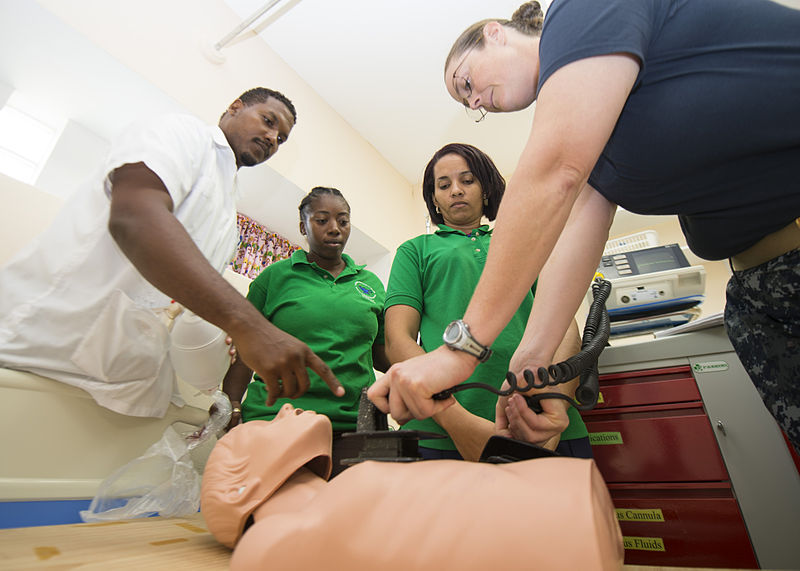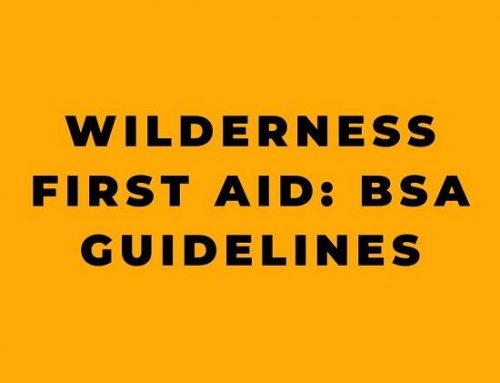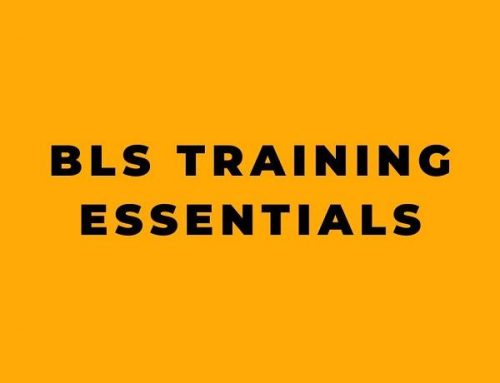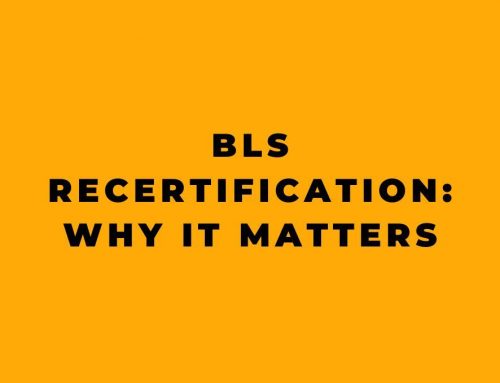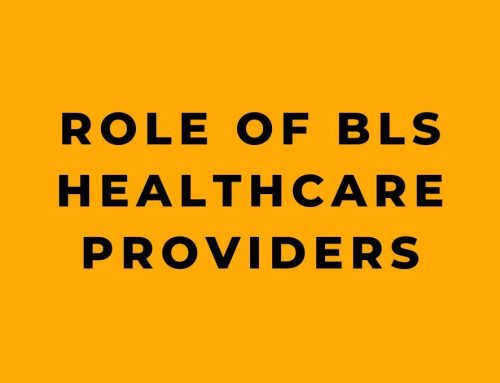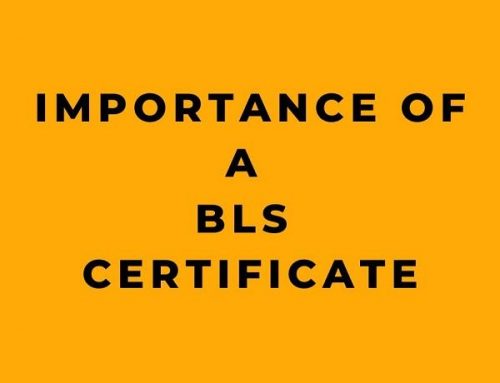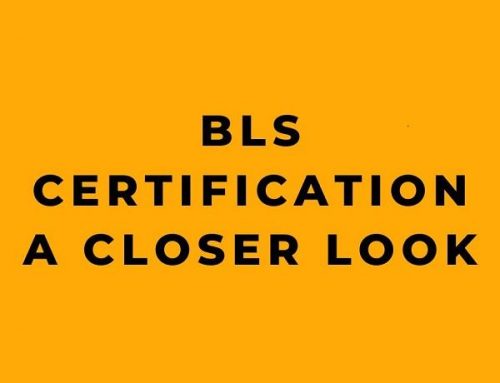Advanced Cardiovascular Life Support (ACLS) certification is a crucial qualification for healthcare professionals, particularly those involved in cardiopulmonary emergencies. This certification equips individuals with the necessary skills and knowledge to treat a range of life-threatening emergencies, including cardiac arrest, heart attacks, and strokes. It is recommended for qualified medical professionals, such as doctors, registered nurses, and paramedics, who may need to intubate patients and administer intravenous drugs.
ACLS certification builds upon basic life support certification (CPR) and covers invasive procedures and advanced cardiovascular life support techniques, including airway management, pharmacology, and resuscitation team dynamics. The main purpose of ACLS is to equip healthcare professionals with the ability to make quick and accurate decisions in scenarios involving cardiopulmonary diseases. This includes skills such as responding to code blue situations and reading EKG strips.
There are several benefits of being ACLS certified. Firstly, it increases the healthcare professional’s reputation in the work field, particularly in specialty areas like the intensive care unit and emergency department. It demonstrates the ability to work in high-pressure environments and assists patients in managing heart conditions and strokes. ACLS certification also shows the healthcare professional’s ability to identify and treat life-threatening conditions, making them a valuable member of a resuscitation team.
Furthermore, ACLS certification helps healthcare professionals stand out in a competitive job market. With the predicted increase in healthcare jobs, it is important to differentiate oneself from others. Getting certified demonstrates competence and dedication to learning, which can help individuals stand out to employers and advance their careers. Additionally, being ACLS certified can lead to promotions or higher pay, and some employers offer tuition reimbursement for taking the course.
ACLS certification courses can be taken online, making it convenient for individuals with busy schedules. These courses are 80% online and 20% hands-on skills based. After successful completion of the course and examination, participants receive an ACLS Provider Course Completion Card that is valid for two years.
ACLS certification is vital for healthcare professionals. It not only enhances their skills and knowledge in handling cardiopulmonary emergencies but also provides them with career advancement opportunities. It is a life-saving skill that optimizes resuscitation efforts and improves patient outcomes.
Requirements for ACLS Certification
The Advanced Cardiovascular Life Support (ACLS) certification is a crucial qualification for healthcare professionals who work with critically ill adults, particularly those who manage cardiovascular emergencies. This certification provides comprehensive medical knowledge and teaches attendees how to respond in life-threatening situations such as cardiac arrest, stroke, or heart attack.
Prerequisites
Before registering for ACLS courses, it’s important to understand the prerequisites. The American Heart Association (AHA) offers both Basic Life Support (BLS) and ACLS courses, with BLS certification being a prerequisite for ACLS. This means that before you can take an ACLS course, you must already have a current AHA BLS for Healthcare Providers certification card.
In addition to BLS certification, you must also have a current AHA ACLS Provider Manual and complete a pretest prior to class, bringing the printout of results with you. Reviewing the “Core Cases” in the ACLS Provider Manual and having knowledge of cardiac rhythm recognition are also required. For renewal students, a current ACLS certification card is necessary.
Qualifications
ACLS certification is required for registered nurses (RNs) and physicians working in a hospital setting with critically ill adults. However, other medical workers and professionals who work with people can choose to take the ACLS course to improve their knowledge and skills.
There are two types of ACLS courses: the regular ACLS course and ACLS for Experienced Providers (ACLS EP), which is for those who regularly use ACLS in their jobs. It’s important to note that most hospitals only accept ACLS certification from the AHA or the American Red Cross (ARC), and they do not accept totally online ACLS courses.
Before obtaining ACLS certification, one must have Basic Life Support (BLS) training. The process of registering for an ACLS certification course involves completing all e-learning modules and reviewing the materials before taking the exam. The exam consists of 50 questions, and a passing score requires answering at least 40 questions correctly. Upon passing the exam, individuals receive a digital certificate of completion and a wallet-sized certification card. ACLS certification must be renewed every two years through an online recertification course.
In conclusion, ACLS certification is a vital qualification for healthcare professionals dealing with cardiovascular emergencies. It requires a solid foundation in BLS and a commitment to ongoing learning and skill development.
The ACLS Certification Process
The Advanced Cardiovascular Life Support (ACLS) certification is a crucial qualification for healthcare professionals who work with critically ill adults, particularly those who manage cardiovascular emergencies. The certification process is comprehensive, covering a range of topics related to resuscitation, airway management, stroke care, and more.
Course Content
The ACLS course is designed to enhance skills in the treatment of adult victims of cardiac arrest and other cardiopulmonary emergencies. It emphasizes the importance of basic life support (BLS) and CPR, as well as effective team interaction and communication during resuscitation. The course includes simulated clinical scenarios and hands-on learning stations to practice essential skills. The content is based on current AHA guidelines and best practice standards.
Examination Process
The ACLS examination consists of both a practical component and a written test. The practical exam involves participating in scenarios that replicate real medical emergencies, requiring participants to demonstrate correct techniques and procedures on a medical mannequin. Evaluation on the practical test is based on communication skills, physical demonstrations, and adherence to ACLS algorithms. The written exam consists of multiple-choice questions and write-in answers for identifying specific cardiac rhythms.
Required Training
Before registering for ACLS courses, a current AHA BLS (Basic Life Support) for Healthcare Providers certification card is required. Knowledge of cardiac rhythm recognition is also necessary. For renewal students, a current ACLS certification card is needed.
Re-certification Details
ACLS certification is valid for two years. Recertification courses are available online, allowing participants to renew their ACLS certification conveniently and at their own pace. These courses are nationally accredited and offer continuing education unit (CEU) credits. The recertification process ensures that healthcare professionals stay updated with the latest emergency cardiovascular care guidelines and standards.
The ACLS certification process is a comprehensive program that equips healthcare professionals with the necessary skills to manage cardiovascular emergencies. It is a critical qualification for those in the medical field, ensuring they are prepared to provide the best possible care to their patients.
Benefits of ACLS Certification
The Advanced Cardiovascular Life Support (ACLS) certification is a valuable credential for healthcare professionals. It provides both tangible and intangible benefits that can significantly enhance a professional’s career and the quality of care they provide to patients.
Patient Care Improvements
ACLS certification equips healthcare professionals with the necessary technical knowledge and training to provide superior care to patients. It teaches individuals how to diagnose and manage adult victims of cardiac and respiratory arrest, as well as other cardiopulmonary emergencies. This advanced training is particularly beneficial for those working in hospitals or with cardiac patients. The certification course covers essential topics such as CPR, airway management, defibrillation, and cardiac arrest management, providing an overview of various life-threatening medical conditions. The knowledge and skills gained from ACLS certification can lead to improved patient outcomes and can be life-saving in critical situations.
Career Advancement
Obtaining ACLS certification can significantly enhance a healthcare professional’s career prospects. The certification demonstrates a commitment to continuous learning and skill development, which can help individuals stand out in the competitive healthcare job market. Most reputable hospitals and medical centers require ACLS certification for certain roles, making it a crucial credential for career progression. Furthermore, the certification can open up new opportunities for advancement, with some employers offering promotions or higher pay to ACLS-certified professionals.
Professional Credibility
ACLS certification also enhances a healthcare professional’s credibility in their field. It signifies a high level of competence and dedication to providing the best possible patient care. This can lead to increased respect from colleagues and superiors, and can also make professionals more attractive to potential employers. In addition, some employers offer tuition reimbursement for taking the ACLS certification course, recognizing the value it brings to their organization.
In conclusion, ACLS certification offers numerous benefits for healthcare professionals. It not only improves patient care and opens up career advancement opportunities, but also enhances professional credibility. Whether required for a job or not, obtaining ACLS certification is a worthwhile investment for any healthcare professional.
Choosing an ACLS Course Provider
Choosing an Advanced Cardiovascular Life Support (ACLS) provider is a crucial decision for healthcare professionals. The right provider can equip you with the necessary skills and knowledge to handle cardiac emergencies effectively. Here are some factors to consider when selecting an accredited provider for ACLS certification.
Accreditation
Ensure that the ACLS provider is accredited and follows the latest guidelines set by the American Heart Association (AHA). For instance, the ACLS Training Center and ACLS Medical Training offer accredited courses that adhere to the new 2020 AHA Guidelines for CPR & ECC (Emergency Cardiovascular Care). AHA offers its own ACLS courses as well.
Course Content
The course content should cover essential topics such as basic life support, high-quality cardiopulmonary resuscitation, ACLS algorithms, acute coronary syndromes, and stroke. Some providers, like Ballad Health, offer courses that last 12 to 16 hours and require the 2020 Advanced Cardiac Life Support Provider Manual.
Support
Customer support is another important factor to consider. Providers should offer assistance to students who have questions or need help. For example, the ACLS Training Center provides contact information for customer support and offers free course-preparation materials, practice quizzes, ACLS algorithms, and ACLS videos on their website.
Fees
The cost of the course is a significant consideration. Some providers offer a 100% money-back guarantee within a certain period, which can provide peace of mind. For instance, the ACLS Training Center offers a money-back guarantee within 30 days.
Other Considerations
When choosing an ACLS course, consider factors such as whether the course offers Continuing Medical Education (CME) credits, if review material is included, and if there are restrictions on time and attempts. Also, consider the provider’s reputation and look for testimonials or recommendations from previous students.
Remember, the AHA does not accredit any 100% online ACLS provider, so an in-person skills test may be required for AHA-approved certifications. Online ACLS courses offer convenience and flexibility, but it’s important to choose a provider that meets your needs and learning style.
Choosing an ACLS provider involves careful consideration of several factors. By doing your research and weighing your options, you can select a provider that best suits your professional needs and helps you excel in your healthcare career.
Tips for Success in ACLS Training
Succeeding in ACLS (Advanced Cardiac Life Support) training requires a combination of effective study strategies, practical simulation preparation, and managing the examination. Here are some practical tips to help you excel in your ACLS training and certification exam.
Study Strategies
- Be Organized: Start by creating a study guide that covers various life-threatening situations that may be encountered in ACLS, such as strokes, cardiopulmonary arrest, and acute coronary syndromes. You can use pre-prepared study guides or create your own.
- Memorize Key Information: Memorization is a crucial aspect of passing the certification exam. Focus on the ACLS algorithms and the Hs and Ts, which represent possible causes and reasons behind a patient’s condition. Use mnemonic devices and repetition for effective memorization.
- Practice: Utilize practice tests to assess your understanding. The more practice tests you take, the better prepared you will be for the certification exam. There are many resources available online, including apps like the ACLS Mastery Practice 2022 and ACLS Exam Expert, which provide practice questions and study materials.
Practical Simulation Preparation
- Study Case Scenarios: Understanding case scenarios is crucial for the practical application of ACLS principles. These scenarios simulate real-life situations that you may encounter in a medical emergency.
- Know Your Medications and Doses: Familiarize yourself with the medications used in ACLS and their appropriate doses. This knowledge is essential for effective patient management during cardiopulmonary emergencies.
- Interpret Basic ECGs: Being able to interpret basic ECGs is a key skill in ACLS. Practice reading and interpreting different ECG rhythms to enhance your diagnostic skills.
Managing the Examination
- Answer Easier Questions First: During the exam, start by answering the questions you find easier. This strategy can help you gain confidence and ensure you don’t miss out on points you could easily earn.
- Read Questions Carefully: Make sure to read each question and its options carefully before answering. Misreading a question can lead to incorrect answers.
- Stay Calm and Relaxed: It’s normal to feel nervous during an exam, but try to stay calm and relaxed. Remember, you have prepared well, and you have the knowledge and skills to pass the exam.
Remember, the key to success in ACLS training is preparation. Use these tips to guide your study and practice, and you’ll be well on your way to acing your ACLS certification exam. Good luck!
Real-life Applications of ACLS
Advanced Cardiovascular Life Support (ACLS) skills are not just theoretical knowledge to be learned and forgotten. They are practical skills that are applied in real-world scenarios, often in life-or-death situations. Here, we will discuss some real-world scenarios where ACLS knowledge is applied, and share insights from professionals who have used their ACLS skills in practice.
Case Studies
One of the most effective ways to understand the real-life applications of ACLS is through case studies. These are real-world scenarios that have been documented to provide insight into how ACLS skills are applied in practice.
For instance, one case study describes a situation where a middle-aged male is found slumped over and not breathing. The first responder calls a “Code Blue” and begins performing CPR. The arrest team arrives and defibrillator patches are placed on the patient’s chest, showing ventricular fibrillation. A cuffed endotracheal tube is inserted without interrupting CPR, and a bi-phasic shock is delivered. CPR continues, IV access is established, and epinephrine is administered. A second shock is delivered, resulting in a pulse. The patient is transported to the emergency department and later undergoes angioplasty and receives a stent.
Another case study involves a 47-year-old male who is transported to the department with symptoms of cardiac ischemia. The patient suddenly arrests, and a biphasic shock is administered. The patient takes a deep breath and improves briefly before collapsing again. Another shock is administered, and lidocaine is administered. The patient is transported to the cardiac cath lab for further treatment.
These case studies highlight the importance of ACLS skills in real-world scenarios and the difference they can make in patient outcomes.
Insights from Professionals
Professionals who have used their ACLS skills in practice emphasize the importance of these skills in their work. For instance, nurses highlight the importance of both hard technical skills and soft skills in their profession. Essential hard skills that nursing employers look for include Basic Life Support, Advanced Cardiovascular Life Support, Emergency and Critical Care Nursing, Patient Care, and Telemetry.
In addition to these technical skills, soft skills such as communication, empathy, time management, critical thinking, teamwork, confidence, attention to detail, flexibility, continuous learning, stamina, and leadership skills are also crucial in the nursing profession.
These insights from professionals underscore the importance of ACLS skills in real-world scenarios and the impact they can have on patient care and outcomes.
ACLS skills are not just theoretical knowledge. They are practical skills that are applied in real-world scenarios and can make a significant difference in patient outcomes. Through case studies and insights from professionals, we can see the real-life applications of ACLS and the importance of these skills in practice.
Conclusion: The Value of ACLS Certification
The Advanced Cardiovascular Life Support (ACLS) certification is a vital qualification for healthcare professionals. It equips individuals with the knowledge and skills to diagnose and provide care for adult victims of cardiac and respiratory arrest, as well as other cardiopulmonary emergencies.
The value of ACLS certification extends beyond the mandatory requirement for certain healthcare roles. It offers three main benefits: career progression, enhanced life-saving skills, and higher pay opportunities. By obtaining this certification, healthcare professionals demonstrate their competence and dedication to learning, making them stand out to employers and opening up new avenues for career advancement.
ACLS training provides in-depth technical knowledge and teaches individuals how to use advanced equipment to support patients and deliver comprehensive care. This knowledge is not only beneficial in a professional setting but also in everyday life, where such skills can make a difference in emergency situations.
Moreover, being ACLS certified can lead to promotions or higher pay. Some employers even offer tuition reimbursement for taking the course, recognizing the value it brings to their organization.
In today’s digital age, online ACLS certification courses are also available, offering convenience for those with busy schedules. These courses, which are 80% online and 20% hands-on skills-based, provide flexible learning options without compromising the quality of education.
In conclusion, the ACLS certification is more than just a qualification. It’s an investment in one’s professional growth, a testament to their commitment to providing the best patient care, and a tool that can potentially save lives. Whether you’re a paramedic, nurse, or medical student, pursuing ACLS certification is a step towards enhancing your skills, increasing your knowledge, and advancing your career in healthcare.
References:


